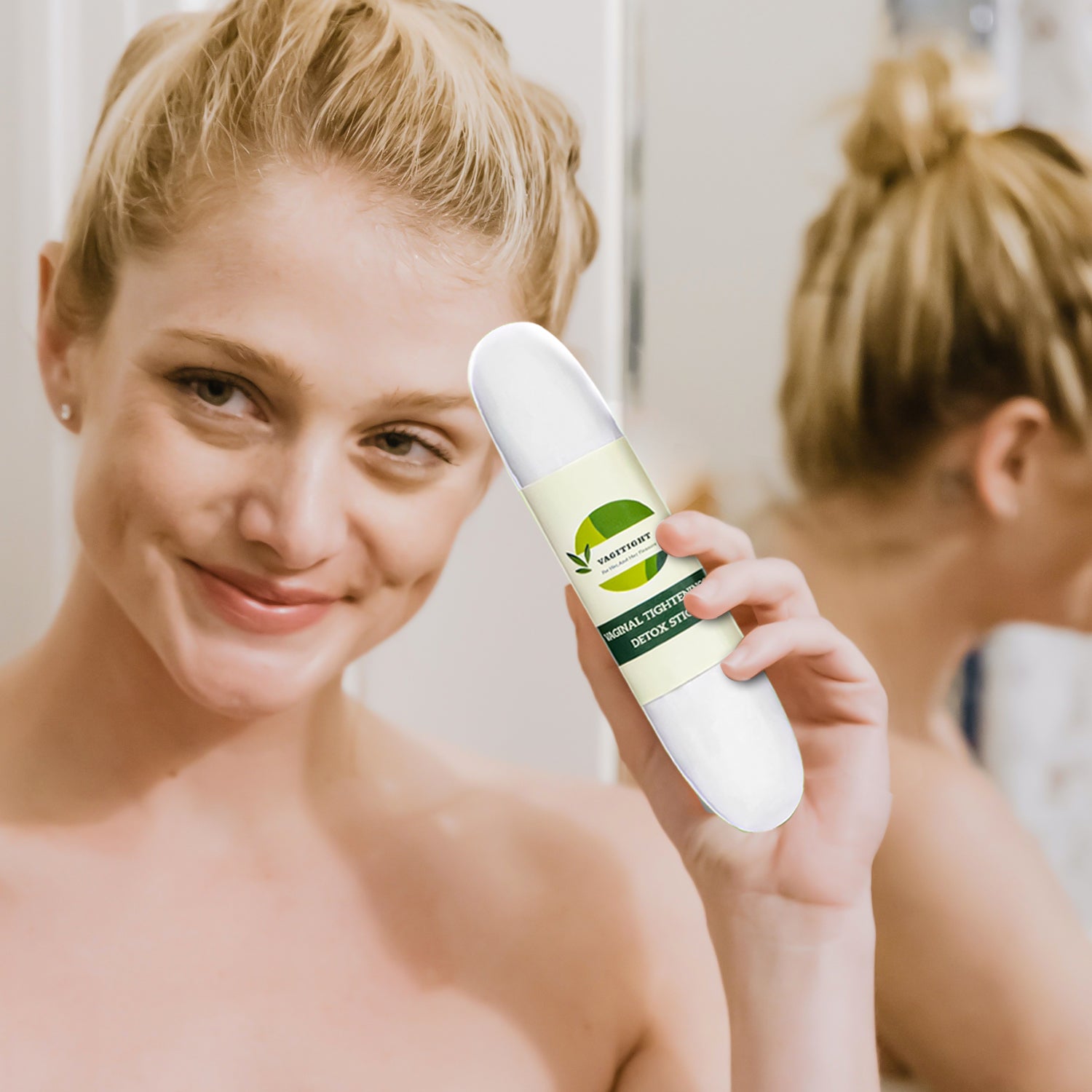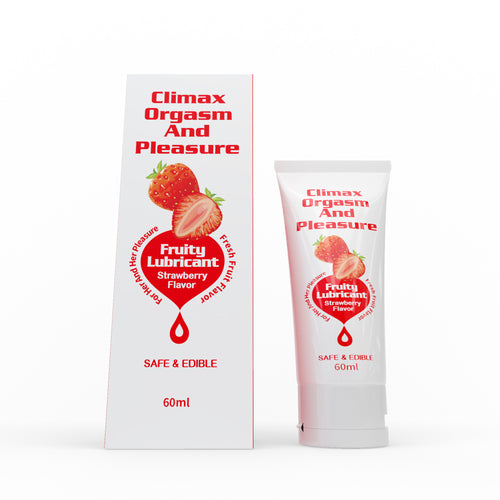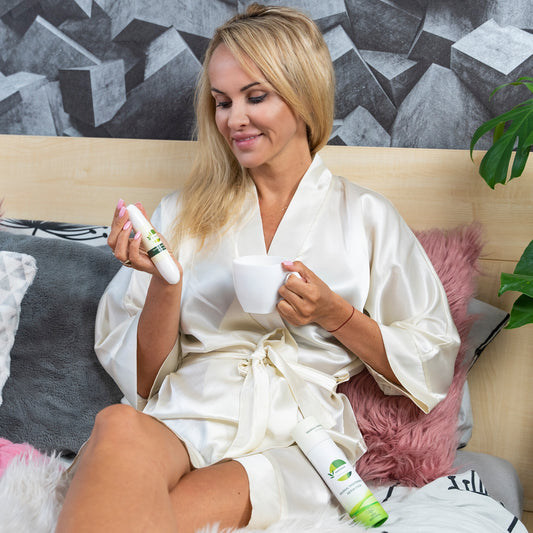As you age, you may notice a change in your vagina’s elasticity and your vagina may feel looser.
But there are cases where these symptoms become worse as you go through menopause or after childbirth, especially after having more than one baby.
These changes are normal though and in most cases don’t need any treatment.
But, you might decide to have treatment if you’re bothered by these changes, particularly if:
- your vagina feels dryer
- sex is more painful
- sex is less satisfying
- you leak a little urine when you laugh or cough (symptoms of stress urinary incontinence)
Although it’s normal to lose elasticity in your vagina, you may feel pressured to do something about it because of all the ways these changes might make you feel.

Yet, there are so much advice on the streets, and social media available to you which can be ineffective at best and dangerous at worst.
One of those pieces of advice circulating around is that using certain home ingredients can help with this problem, is it true?
Well, you will find out soon enough
One of the reasons why home remedies are being prescribed is that they’re usually low-cost, readily available, and easy to try yourself.
But, you must approach them with extreme caution, as using them can result in:
- infections (such as yeast infection)
- irritation
- itching
- injury—such as the case of a woman who gained second-degree burns after steaming her vagina
Here are the 5 most common home remedies recommended and why you should avoid them.
1. HERBS
For centuries, people have been using herbs to treat a huge range of medical conditions. But, this doesn’t mean it’s a good idea to put them in your vagina.
The gel in aloe vera has lubricating properties and is present in some lubricating gels.
But as it hasn’t shown any effect on tightening the vagina walls, you shouldn’t apply it to your vagina without speaking to your GP or gynecologist first.
- Witch hazel
Witch hazel is a shrub and its bark and leaves are used to treat inflammation. Applying witch hazel to a sanitary pad and cooling it is an effective way to ease the soreness of the vagina and vulva after childbirth.
But, you shouldn’t apply witch hazel to the inside of your vagina. Indeed, you should always speak to your GP or gynecologist before applying any product that hasn’t been prescribed or isn’t specifically designed for vaginal lubrication.
2. CHEMICALS
Although chemicals and vaginas are not a good mix, applying potassium alum to the vaginal walls has been touted as an effective home remedy. It’s said that the astringent properties of the chemical are good at tightening the vaginal tissue.
However, it’s really not worth the risk. Potassium alum can also cause scarring, increase the chances of infection, and absorb into your body, having toxic side effects.
3. FOOD
Food should be eaten, not put inside your vagina. Yet despite this sensible advice, everything from lemon juice and cucumber to garlic and yogurt has been cited as a way to cleanse and tighten the vagina.

Let’s take a look at two of the most popular vagina tightening home remedies—apple cider vinegar and lemon.
- Vinegar: Apple cider vinegar is the go-to tonic for everything from lowering blood sugar levels to helping with weight loss. It’s also been hyped as a way to tighten the vaginal canal.
However, because vinegar is very acidic, it could not only cause pain and irritation but also disrupt the natural balance of bacteria in your vagina leading to severe problems for your delicate parts.
- Lemon: Lemon is said to make the vagina more acidic and lower its pH level. However, it can actually irritate the vagina and worsen urinary incontinence symptoms.
4. SPICES
It’s claimed that turmeric has a tightening effect when applied to the inside of the vagina and the vulva.
Although there has been a study into the effects of turmeric, it was done on rats rather than people, and there is no research to say there are benefits to humans especially women.
5. HOT WATER
The vagina is clean enough and doesn’t need any other type of cleansing but some women have turned to various risky ways like douching or steaming to cleanse their vagina.
Douching (using water to “flush out” the vaginal canal) or steaming (crouching over hot water so the steam can cleanse the genitals) not only risks upsetting the vagina’s pH balance but, in the case of steaming, could actually scald the vulva.

Now that you have learned about how harmful these home remedies are, you need to know that there are natural ways that don’t need you to rely on dangerous home remedies (or surgery) to gain a tighter vagina.
These natural ways are safer, require less time (just 2 minutes daily), are effective, and come highly recommended. That's where our products come into play. We offer three innovative solutions designed to help you achieve your goals in a safe and natural manner:
-
Vagitight™ Instant Vaginal Tightening: This first product offers a gentle, yet effective approach to vaginal tightening. It's made with natural ingredients, ensuring your comfort and safety.
-
Vagitight™ Extra Vaginal Tightening: For those seeking a bit more efficiency, this product combines ease of use with powerful results. Just a couple of minutes each day with this can make a significant difference.
-
Vagitight™ Ultimate Vaginal Tightening: The third option is the pinnacle of convenience and effectiveness. It not only aids in tightening but also promotes overall vaginal health.
By choosing the Vagitight products, you're opting for a natural, risk-free path to achieving your desired results. Say goodbye to risky remedies and hello to a confident, healthier you!
Trusted Sources:
-
Cleveland Clinic on Vaginal Rejuvenation Options
This article covers surgical and non-surgical options for vaginal rejuvenation, such as laser treatments and radiofrequency devices: Cleveland Clinic - Vaginal Rejuvenation Cleveland Clinic -
National Institutes of Health on Laser Treatments
Details on laser treatments such as Er-YAG: NIH - Laser Vaginal Rejuvenation -
Cleveland Clinic on MonaLisa Touch
A detailed look at the MonaLisa Touch procedure, a CO2 laser treatment often used to address vaginal atrophy symptoms without anesthesia: Cleveland Clinic - MonaLisa Touch -
Cleveland Clinic on Vaginoplasty Procedures
This guide explains vaginoplasty, which can restore function and appearance post-childbirth or for other medical reasons: Cleveland Clinic - Vaginoplasty






